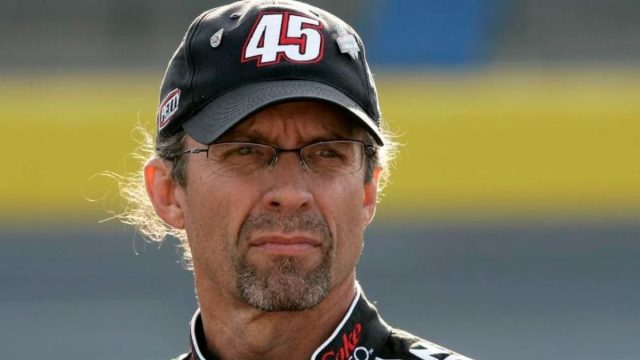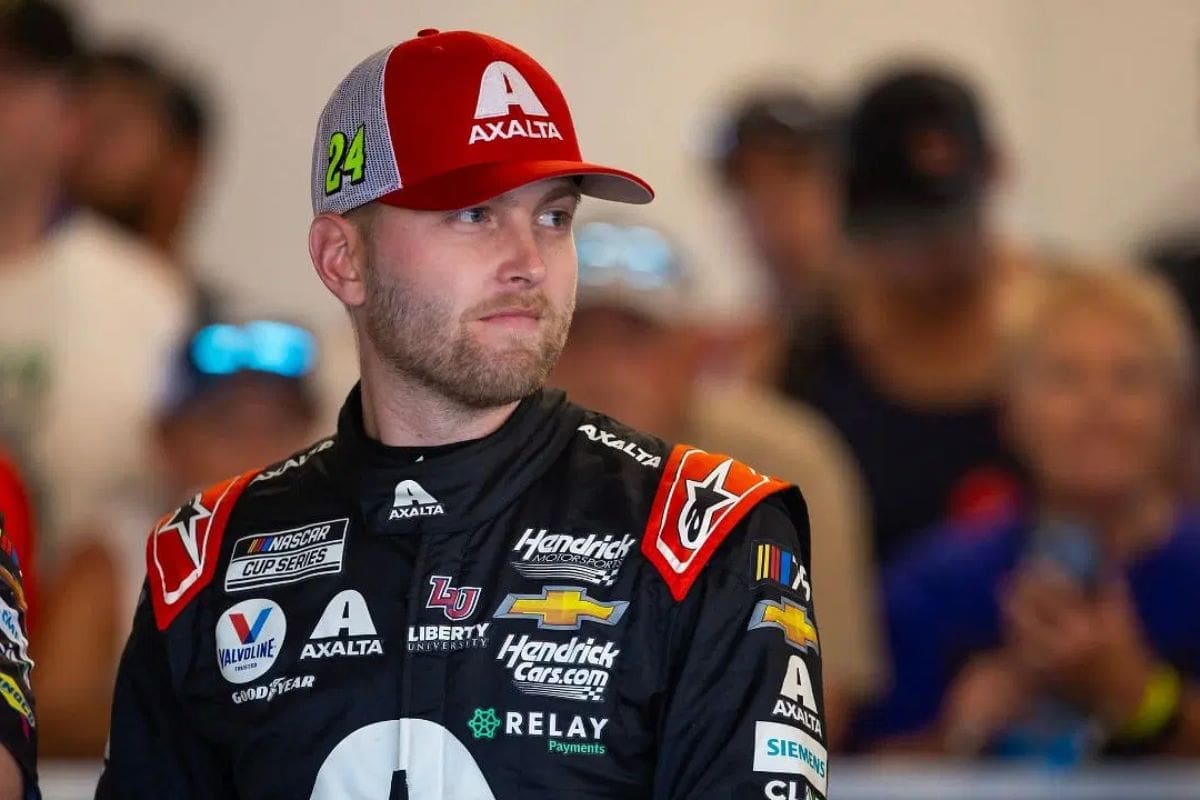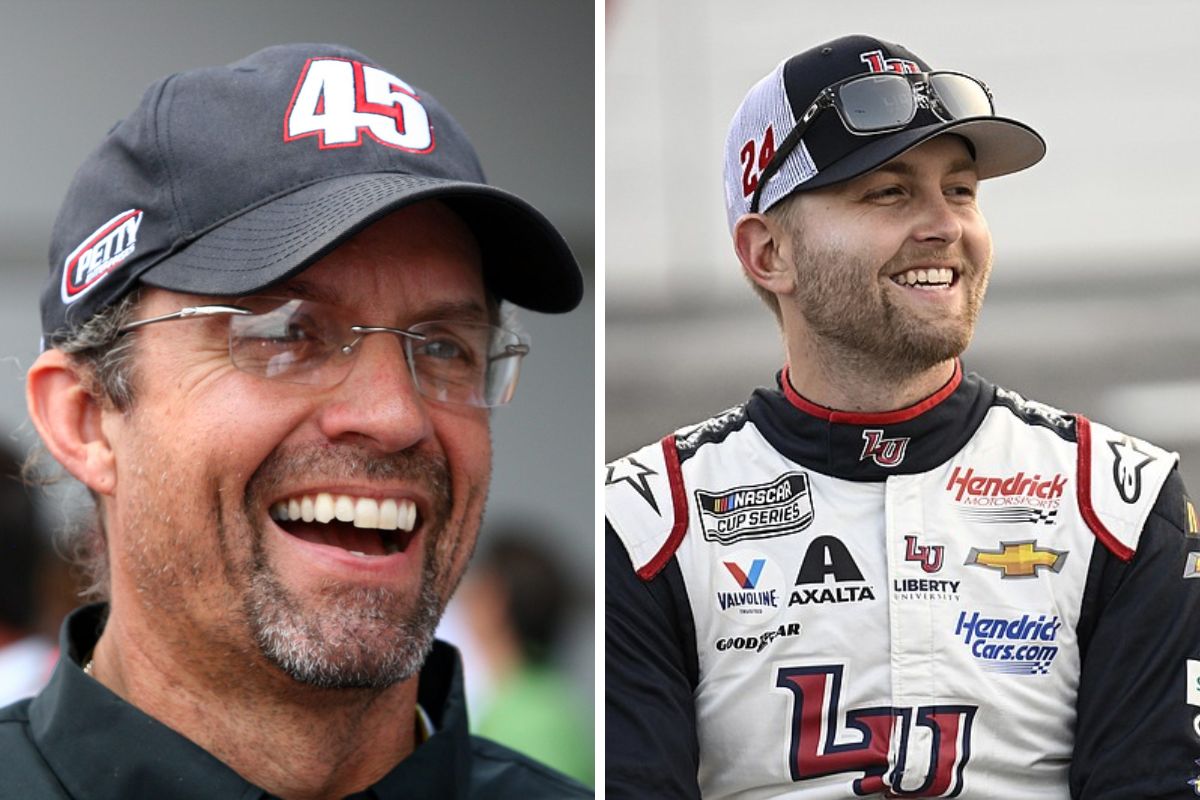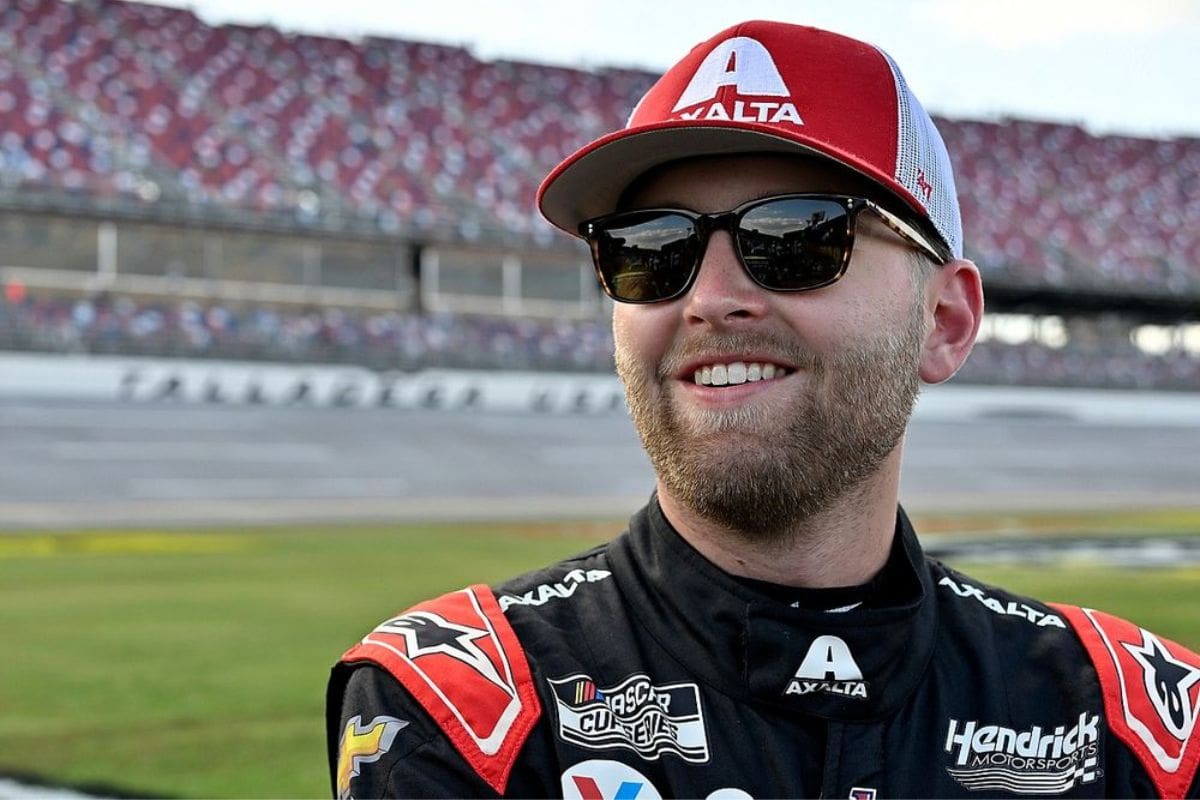Kyle Petty Reveals Hendrick’s Bold Move: In a recent discussion, Kyle Petty elaborated on Hendrick Motorsports’ strategic decision to nurture William Byron’s nascent racing career, a move that now appears prescient given Byron’s escalating success in NASCAR. This initiative not only highlights Hendrick’s commitment to cultivating young talent but also serves as a proof of their ability to spot and shape future champions in the highly competitive arena of motorsports. The intriguing factor lies in how this early bet on Byron compares to the industry’s historical approaches to talent development.
Key Takeaways
- Hendrick Motorsports invested early in William Byron, seeing his potential before he proved himself in the big leagues.
- Kyle Petty highlighted Hendrick’s steadfast support and developmental approach, crucial for Byron’s rapid rise in racing.
- Hendrick’s involvement facilitated Byron’s transition to top-tier racing, mirroring their past success with nurturing young talents like Jeff Gordon.
- The move underscores Hendrick’s philosophy of patience and belief in young drivers’ potential, setting a precedent in grooming racing talents.
- This strategic decision by Hendrick significantly boosted Byron’s career, reinforcing the team’s commitment to building a legacy of excellence.
William Byron’s Racing Success
William Byron’s rise in the racing world is marked by his exceptional skill and strategic expertise, consistently outperforming veterans and clinching multiple victories early in his career. His progression is not just a story of raw speed but a proof of his analytical approach to racing, which has drawn comparisons with some of the sport’s legends. His performances, particularly this season where he has dominated three out of 11 races, emphasize a maturity and tactical proficiency that contradict his age.
Byron’s success is not an overnight phenomenon. His trajectory has been stellar from the start, marked by a significant win at Daytona in 2020. This victory was not just a race won, but a declaration of his readiness to take on the challenges of NASCAR’s elite circuit. His ability to navigate the demands of the sport while maintaining consistency in his performance speaks volumes about his psychological resilience and adaptability—traits that are indispensable in motorsports.
Kyle Petty’s Insights on William Byron
Reflecting on William Byron’s early career challenges, Kyle Petty emphasized the steadfast belief Rick Hendrick held in Byron’s potential, likening his raw talent and promise to that of racing legend Jeff Gordon. Despite Byron’s initial struggles in his initial two Cup series years without a win, Hendrick’s strong support never faltered. Kyle Petty recently shared deeper insights into this phenomenon, revealing why Hendrick committed so fully to Byron right from the start.
- Early Investment: Hendrick recognized Byron’s potential early on, choosing to invest in him both financially and emotionally. This decision was based not just on Byron’s raw speed and skill, but on an intrinsic quality that Hendrick saw, which reminded him of other racing prodigies.
- Rapid Progression: Despite a modest start in trucks and Xfinity, Byron was quickly promoted to the big leagues under Hendrick’s banner. Petty noted that this bold move was indicative of Hendrick’s confidence in Byron’s ability to mature and succeed at the highest levels of racing.
- Steadfast Support: Throughout the ups and downs of the initial seasons, Hendrick’s support remained solid. Petty highlighted this aspect as essential, considering the expectations and demands that come with competing in the Cup series. This support system not only bolstered Byron’s confidence but also accelerated his growth and adaptation in the sport.
Petty’s Comparison between Byron and Jeff Gordon
Kyle Petty explains the similarities between William Byron’s and Jeff Gordon’s racing careers, highlighting Rick Hendrick’s visionary approach in developing top-tier NASCAR talent. Hendrick’s strategy, as Petty elaborates, centers around a deep commitment to nurturing young drivers, particularly evident in the cases of Byron and Gordon.
“I look at him in the same mold as a Jeff Gordon.“
“Rick’s goal and Rick’s vision for a William was to be a cup driver. If Rick was willing to commit… financially, emotionally and to be that guy to say, “You’re my man, we’re your man. I’m going to stand behind you no matter what you do these first few years. but we’re gonna learn to drive a race car together. I’m gonna give you the equipment and you’re gonna learn to be a cup driver.”
“And William took advantage of those things. that time, that grace period to learn to be a Cup driver. Not to be a truck driver; not to be an expanding driver; be a cut driver. And I think that’s what he did with Jeff.” -Kyle Petty
Petty points out that Hendrick’s approach goes beyond mere recruitment; it involves a profound dedication to transforming promising drivers into Cup series contenders. For Byron, this meant an opportunity to focus solely on mastering the skills necessary for top-level racing, without the distraction of competing in lower series like trucks or Xfinity extensively.
The grace period Hendrick allows, as mentioned by Petty, is critical. It provides drivers like Byron the time to adapt, learn, and ultimately excel. This method, which was also applied to Gordon, reflects a philosophy of patience and belief in the potential of drivers, which is vital in NASCAR.
Before @WilliamByron was a weekly contender and title threat, @kylepetty was signing his praises.
What made him so sure the Willy B THEN would become the Willy B NOW?
🗣️ "Rick (Hendrick) was willing to commit."
More with KP on Episode 223 of 𝙑𝙞𝙘𝙩𝙤𝙧𝙮 𝙇𝙖𝙣𝙚, out now ⬇️ pic.twitter.com/KAtpbV2ufy
— Davey Segal (@DaveyCenter) April 30, 2024
Byron’s Impact Beyond Racing
Beyond his achievements on the track, William Byron’s influence extends to enhancing team performance and vehicle dynamics, setting a new standard in NASCAR’s collaborative environment. As Kyle Petty points out, Byron possesses a profound understanding of racing intricacies, evocative of legends like Jeff Gordon and Dale Earnhardt. This insight not only propels his own career but also substantially uplifts his teammates, forging a synergy that transcends individual racing capabilities.
“He’s a guy who can make the car is better for everybody. He’ll make the car better for Kyle Larson, and he’ll make the car better for Alex Bowman, he’ll make the car better for Chase Elliott. That’s what Jeff Gordon could do. That’s what Dale Earnhardt did. That’s what Kurt Bush has done at every team he’s gone to. He’s made the team better because he’s made the car better.”-Kyle Petty
- Enhancing Team Synergy: Byron’s capability to improve the car’s performance has a surge across his team. By optimizing vehicle dynamics, he indirectly bolsters the performance of his teammates, such as Kyle Larson, Alex Bowman, and Chase Elliott. This type of influence is critical in a sport where milliseconds often separate the winner from the rest of the field.
- Raising Performance Standards: Byron sets higher benchmarks not just for himself but for his entire team. His contributions help in refining the strategies and technologies used, which in turn heightens the team’s overall performance. This ongoing improvement cycle fosters a competitive edge essential for sustained success in NASCAR.
Byron’s Charity Work
William Byron’s dedication to philanthropy is highlighted through his proactive participation in charity events, especially his annual golf tournament which greatly benefits the Big Brothers, Big Sisters of Central Carolina. His recent charity golf event at Providence Country Club in Charlotte, North Carolina, is a reflection of his commitment. The event successfully raised $300,000, demonstrating an impressive increase from the previous year’s tally of $233,000.
Byron’s philanthropic efforts extend beyond mere financial contributions; they also serve an educational purpose. As someone who has experienced the role of a mentor through Big Brothers Big Sisters, Byron understands the profound impact mentorship can have on young lives. His involvement goes beyond typical celebrity endorsements, fostering a deeper connection with the cause and potentially encouraging others in his sphere of influence to lend their support.
News in Brief: Kyle Petty Reveals Hendrick’s Bold Move
William Byron’s rise in NASCAR, highlighted by Petty’s analysis and comparisons to legendary figures such as Jeff Gordon, exemplifies a successful strategic investment by Hendrick Motorsports. The nurturing and support from Hendrick have been pivotal in Byron’s development, not only as a formidable competitor on the track but also as a philanthropic figure off it. This trajectory underlines the potential for young talents in motorsports when paired with visionary support and robust mentorship.
Our Reader’s Queries
Q. What is the relationship between Kyle and Richard Petty?
A. Kyle Petty, born on June 2, 1960, is a renowned figure in American stock car racing. His lineage is steeped in racing history, being the son of the legendary Richard Petty, grandson of the esteemed Lee Petty, and father of the promising Adam Petty. Tragically, the racing world mourned Adam’s loss when he met with a fatal accident during a practice session in May 2000. Despite stepping away from racing, Kyle continues to contribute to the sport as a racing commentator, showcasing his expertise and passion for the sport that runs deep in his family’s veins.
Q. Who is Kyle Petty new wife?
A. In December 2015, Kyle Petty tied the knot with Morgan, who also serves as the executive director of his Kyle Petty Charity Ride Across America. Prior to this union, Kyle was married to Pattie Petty for 33 years until their split in 2012. Their marriage faced challenges when Pattie was diagnosed with Parkinson’s disease in 2011. Despite the trials, Kyle has found love anew with Morgan, and together, they continue to make meaningful contributions through their charity endeavors.
Q. Why did Kyle Petty retire?
A. In 2001, Adam Petty took the reins of the No. 45 in the Winston Cup full-time, marking a significant milestone for the Petty legacy. Alongside this transition, Petty Enterprises made the strategic move to switch to Dodge, aligning with the brand across the board. However, despite the family’s enduring legacy, Kyle’s own racing career faced challenges, with his performance dwindling in recent years. Ultimately, in a reflective decision, Kyle announced his retirement from racing after the 2003 season, marking the end of an era for the Petty racing dynasty on the track.
ALSO READ: Kyle Petty Praises Tyler Reddick: A Jordan-Esque Performance



